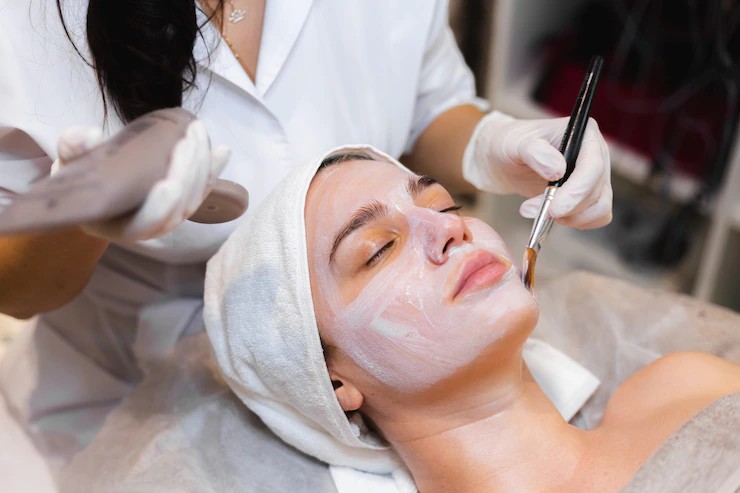Over the past ten years, India’s private care and beauty sector has experienced exponential growth. Trends demonstrate a significant domestic and international player contribution to the Indian market. Customers may find these cosmetic items offline at their local markets, shopping centers, salons, etc., or online on specific websites for beauty and personal care. With an upward tendency, there are certain dangers for naive customers. This article will inform you of your rights and give you workable answers in case you encounter any problems and how to raise a complaint against a Spa and beauty parlour in India.
It’s important to note at this point that the Indian Drugs and Cosmetics Act of 1940 regulate the production, distribution, import, export, and clinical research of drugs and cosmetics in India. As a result, it is Spa’s legal obligation to recommend the best medications and medical services to its clients. In accordance with the Consumer Protection Act, 2019, of the Indian Government, we may file a complaint against a spa in India for the following reasons:
- Inaccurate information and advice
- Selling of incorrect and out-of-date facilities
- Expensive Fake Goods
- Illegal behavior
- fraud against consumers
- Unsanitary surroundings
- Service-Related Problems
- Problems Regarding Payment
- Use of soiled towels
- There is a lack of hygiene.
In the event of defective product delivery, subpar service, or harassment, a customer may file a complaint in a consumer court against a service provider or a vendor. The judiciary hearings on consumer complaints are under the jurisdiction of the Indian government. The full process of filing a complaint in consumer court will be covered here.

Requirements on how to file a complaint against a Spa or beauty salon
In order to register a complaint in the consumer court, the consumer must have comprehensive proof, including all supporting documentation for the issue, receipts (as proof of purchase), and other pertinent papers.
- By a service provider engaging in unfair or prohibited commercial practices.
- Defective or subpar goods that the consumer has already purchased or has committed to buy.
- Whether employed or verified to be hired, there was a service deficiency.
- Overcharging for products when the price is set by the law, shown on the package, or has been mutually agreed upon.
- Selling products that pose a risk to health, safety, and property.
How to file a complaint against a spa or beauty salon in Consumer Court?
Although the procedure for filing a complaint or lawsuit in the consumer court is straightforward and generally easy to follow, it will nevertheless take the consumer some time. How to submit a complaint or lawsuit in the consumer court is quickly explained in the procedures that follow.
Legal Notice of 15 Days
In order to make a claim for redress of grievances before the consumer court, the consumer must first serve a fifteen-day legal notice on plain paper to the supplier of the defective good or service, requesting that they pay the damages to the customer within fifteen days of receipt of the notice. The following must be verified by the consumer:
- If a service is being provided, the legal notice should be served on the product’s producers, sellers, and service providers. This should be done, in particular, using registered mail with a signed acknowledgment.
- The deadline to register a complaint in the consumer court is 30 days (counting from the date of purchase).
- Before submitting a complaint to the consumer court, the vendor must get a 15-day legal notice from the customer.
- As soon as the seller has received the 15-day notification, the lawsuit must be filed in the consumer court.
Gather Relevant Documents
Since you’ll need to present them in court, it’s a good idea to maintain all the case-related documents close at hand. Here are some examples of documents that are typically filed with the court:
- Bill, payment receipt, delivery, product packing, etc.
- Warranty/Guarantee cards
- a duplicate of the letter of complaint or notification delivered to the seller.
Appropriate Consumer Forum/ Consumer Court
After preparing the complaint and gathering all necessary evidence, one must determine the worth of his claim and select the appropriate court in accordance with that value.
You can also file a complaint against a spa or beauty salon at Voxya an online consumer complaint forum that helps consumers to fight against injustice done by the company or the brands.

It helps consumers to get a replacement, refund, and compensation from the company or the seller. Using the following easy steps:
Social Media Campaign: It uses the power of social media channels and starts social media campaign for the maximum impact of consumer complaints.
Send an Email: It sends an email to the company and notifies the company about the complaint.
Legal Notice: It will draft and send a legal notice to the spa and beauty salon via registered post and also send a copy to the consumer’s address.
Consumer Court: It prepares consumer case documents, a consumer can submit these documents to file a case in consumer court.
Hire A Lawyer: If you want to save your time and efforts then you can hire a lawyer from Voxya who will file a case in consumer court on behalf of the consumer and fight until to get a judgment from the consumer court.

Conclusion
The fashions are changing along with the centuries. Additionally, the markets are altering along with the shift in trends. The slogan “Customer is the King” has replaced the previous one, “Let the buyer beware.”
And this minor shift in the concept has had a devastating impact on marketing strategies. A customer is now in charge and has the legal authority to bring a lawsuit against a marketer who engages in unfair commercial practices. But for a very long time, individuals attempted to stay as far away from the courts as they could. This was due to the courts’ tendency to drain people’s bank accounts occasionally in addition to taking their time.

